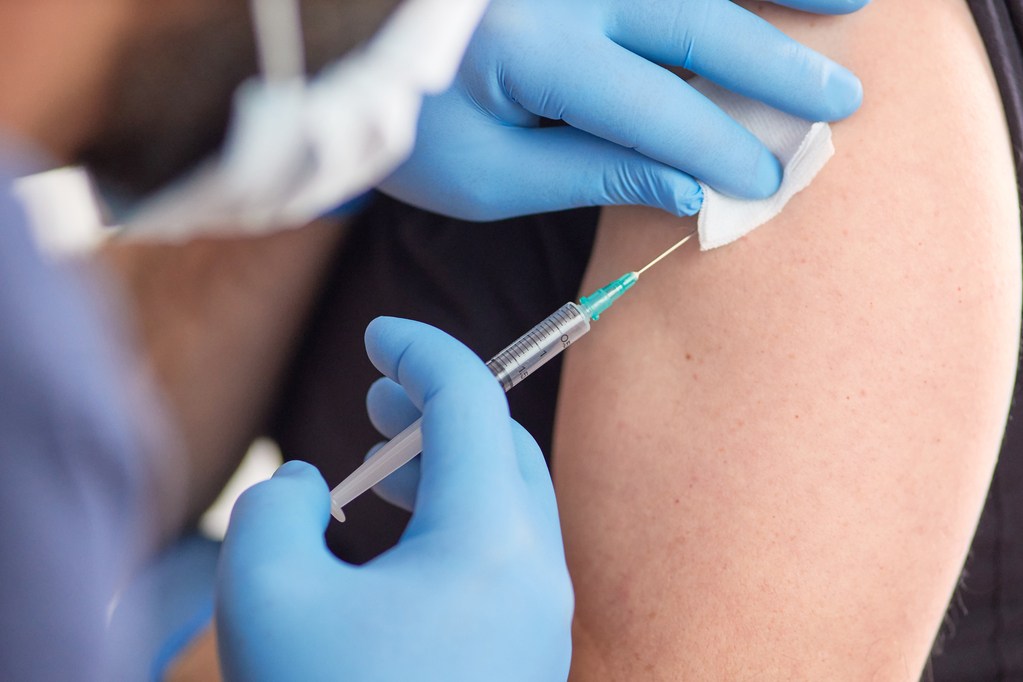About 200 million doses of vaccines have been distributed so far inside the EU, enough to vaccinate more than half of Europe's adult population at least once. A similar number of vaccines has been exported from the EU.
“The EU was not designed to deal with health issues or fight a pandemic,” European Commission President Ursula von der Leyen admitted on Thursday via video conference at the annual State of the Union conference of the European University Institute (EUI) in Florence. In the beginning of the crisis, some member states even introduced export bans on medical equipment to other member states.
Since then, Europe has demonstrated that a union of democracies can deliver in times of crisis, she continued. “For its own citizens. And for the rest of the world.” She highlighted the European vaccination campaign as a success, after a slow start, delivery problems and logistical problems in the roll-out in the member states.
“Europe has never seen anything like this: a mass vaccination campaign on a continental scale… I’m confident that we will be able to reach our goal, to deliver enough doses to have 70% of European adults vaccinated already in July,” she said optimistically.
The Commission is now close to signing a new contract with BioNTech-Pfizer, she announced. “It will deliver 1.8 billion doses of vaccines between year end and 2023. And other contracts will follow.”
Von der Leyen took also credit of the export of vaccines from vaccine producers in Europe to the rest of the world. “Europe achieved this success while remaining open to the world. While others keep their vaccine production for themselves, Europe is the main exporter of vaccines worldwide.”
So far, more than 200 million doses of vaccines produced in Europe have been shipped to the rest of the world. “Europe exports as much vaccines as it delivers to its own citizens.” Exports from Europe go to more than 90 countries, COVAX included, she said, referring to the WHO-led initiative to provide vaccines to low-income countries. The EU has funded the facility with almost €2.5 billion.
According to her own figures, almost all the 200 million vaccine doses have been exported to predominantly rich countries, such as “close allies” like Canada and the UK. First in the export league is Japan (72 million vaccines), followed by UK (19 million), Canada (18 million), Mexico (10millon), Saudi-Arabia (7 million), Turkey (5 million), Switzerland (5 million), Singapore (3 million), Columbia (3 million) and Korea (3 million).
In total, since the end of January to the beginning of May, the EU member states have approved 854 requests for export authorisations and rejected one request under the special export transparency and authorisation mechanism. The total doses authorised for export under the mechanism amount to 178 million to 45 different export destinations.
That would imply that at most 22 million vaccine doses have been donated so far to low-income countries via the COVAX mechanism or bilaterally by EU member states. Some of these have not actually been delivered yet.
A significant number of vaccines for the candidate countries in the Western Balkans, the future EU member states, was recently secured thanks to the facilitation of Austria and funded by the Commission. 651,000 doses of the BioNTech/Pfizer vaccines will in the first instance be used for vaccinating medical workers and other vulnerable groups in the region.
Deliveries to the Western Balkans will begin in May and continue until August, according to the Commission.
Franch has already shared 106,000 doses to COVAX and will donate 500.000 by Mid-June. Spain has promised that it will donate between 5 and 10% of the doses it will receive in 2021 through COVAX. Portugal has announced that it will share 5% of its doses.
Sweden announced on Monday that it plans to donate one million vaccine doses to COVAX of the AstraZeneca vaccine. A spokesperson for Per Olsson Fridh, the Swedish minister of international development cooperation & humanitarian affairs, told The Brussels Times that the doses are expected to be delivered during the second and third quarters of 2021.
Export data
The exports of vaccines to non-EU countries went to the following countries: Albania, Argentina, Australia, Bahrain, Brazil, Canada, Chile, China, Colombia, Costa Rica, Dominican Republic, Ecuador, Hong Kong, Iceland, India, Iraq, Israel, Japan, Jordan, Kuwait, Lebanon, Macau, Malaysia, Mexico, New Zealand, North Macedonia, Norway, Oman, Panama, Peru, Philippines, Qatar, Republic of Korea, Saudi Arabia, Serbia, Singapore, South Africa, Switzerland, Taiwan, Turkey, the United Arab Emirates, the United Kingdom, the United States, Uruguay and the Vatican City.
M. Apelblat
The Brussels Times

